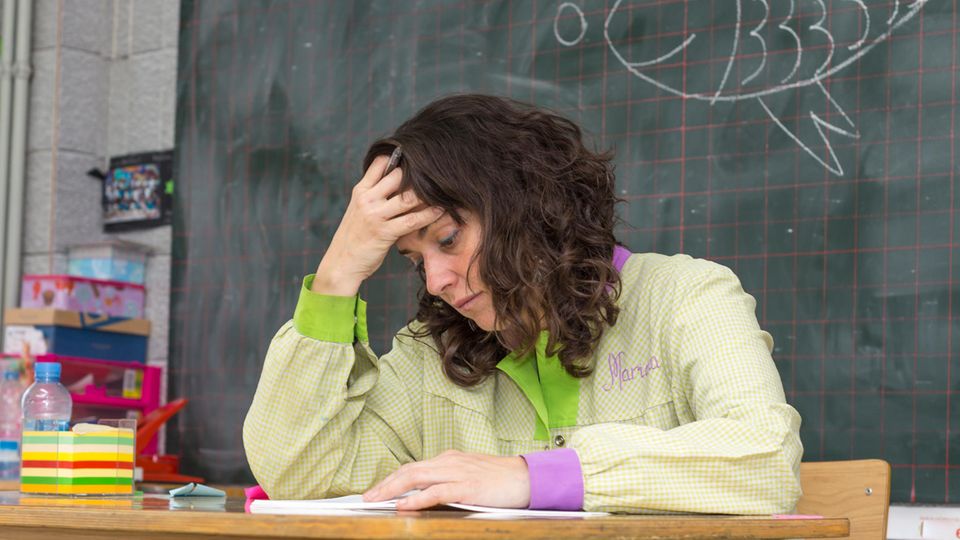Igloo Study
“Alarming”: Every fourth child in fourth grade cannot read properly
In an international comparison of education, children in Germany have been doing worse and worse for years (symbol image)
© Daniel Karmann / DPA
The German education system is in crisis: teacher shortages, school dropouts, poor performance among the youngest. Another study now confirms that many children can hardly read after almost four years of primary school.
According to a study, every fourth child in fourth grade in Germany cannot read properly. As the international primary school reading study (igloo) presented in Berlin on Tuesday shows, 25 percent of children in this age group do not reach the minimum level of text comprehension that would be necessary for the requirements in the further course of school. In the last igloo survey, which was published at the end of 2017, the proportion of this group was still 19 percent.
According to the authors of the study, the proportion of affected schoolchildren with major reading difficulties is now “alarmingly high”. In the last igloo survey, which was published at the end of 2017, it was still at a high 19 percent. The affected group will “have considerable difficulties in almost all school subjects” in their further school career, if they cannot catch up.
Federal Education Minister Bettina Stark-Watzinger described the results of the reading study as “alarming”. Being able to read well is one of the most important basic skills and the foundation for educational success, said the FDP politician on Tuesday, according to a statement. “The igloo study shows that we urgently need a turnaround in education policy (…).”
The study also shows: Internationally, elementary school students in Germany perform worse in reading skills than their peers in many other countries.
Germany is also performing worse and worse in other educational studies
The authors give German education policy bad marks: the goals for the further development of education in Germany formulated by the Conference of Ministers of Education (KMK) more than 20 years ago in the wake of the so-called Pisa shock were missed in many places.
The sobering findings from Iglu are in line with the results of other educational studies. Just last year, the IQB education trend, a regular series of tests among fourth-graders, showed that they had fallen significantly behind in the so-called basic skills in math and German in recent years.
The igloo tests have been carried out every five years since 2001. The Institute for School Development Research at the TU Dortmund is responsible. The project is funded by the KMK and the Federal Ministry of Education. The current survey dates from 2021. Around 4,600 students from 252 fourth grades in Germany took part. They each received factual and narrative texts and the associated comprehension tasks, which they had to solve on laptops. Around 400,000 students from 65 countries and regions took part internationally.
Bullying, violence and Corona
“School as a place of torment”: Everyday life of a violence teacher at a Hamburg school
Opportunities for children still unequal
After evaluating the results, point values were assigned to the countries. Singapore tops the list with 587 points, followed by South Africa with 288 points. With 524 points in an international reading comparison, fourth-graders in Germany land in the middle, around the EU and OECD average. Countries like Spain, France or Belgium fare worse. On the other hand, the reading performance in England or Poland, for example, is far better than in Germany.
After an initial improvement in the mid-2000s, the German score has now fallen to a low for the third time in a row. Countries like Russia or Slovenia have improved significantly over the past two decades. “In Germany, the Netherlands and Sweden, on the other hand, there is a problematic development,” says the report.
The development is not only due to a change in the composition of the student body. It is also assumed that there is a connection with Corona. School operations were severely restricted during this time, for example due to closures.
The well-known finding from other studies is also confirmed in this study: children from privileged homes have greater chances of educational success than other children. The 20-year trend shows neither an increase nor a reduction in this problem. In terms of educational equity and equal opportunities, “practically nothing has changed,” the scientists concluded.


